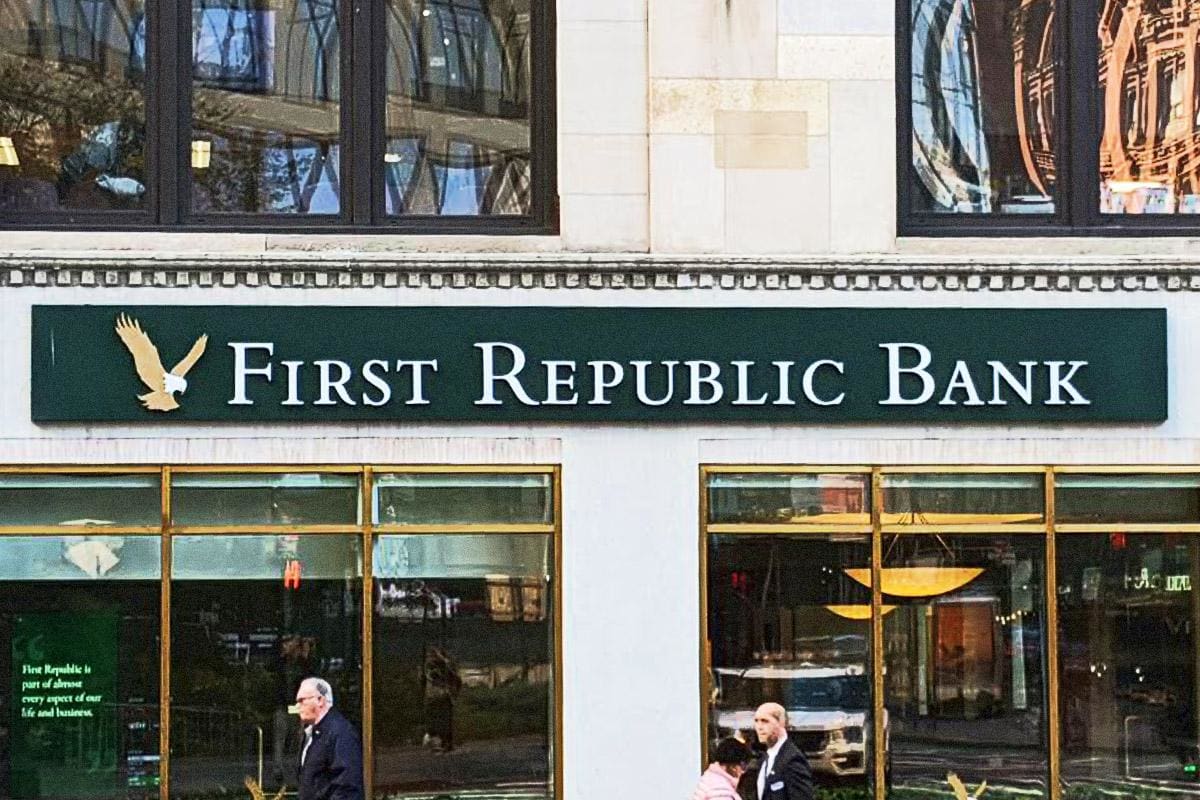
First Republic Bank (FRC) shares were halted from trading on the New York Stock Exchange Monday as it moved to assure investors that spillover from the collapse of Silicon Valley lender SVB Financial (SIVB) would not affect the business operations of the private lender and wealth management firm.
First Republic said it had arranged an additional $70 billion in available liquidity support from both the Federal Reserve and "additional financing" from JPMorgan Chase (JPM) over the weekend.
The funding, First Republic said, does not include its potential access to the Fed's new “Bank Term Funding Program” (BTFP) program, which allows U.S. banks to borrow billions, at favorable market terms, if the loans are backed by Treasury bonds, high-quality agency debt or mortgage-backed securities.
“First Republic’s capital and liquidity positions are very strong, and its capital remains well above the regulatory threshold for well-capitalized banks," said CEO Mike Roffler and founder Jim Herbert in a joint statement Sunday. "As we have done since 1985, we operate with an emphasis on safety and stability at all times, while maintaining a well-diversified deposit base"
"First Republic continues to fund loans, process transactions and fully serve the needs of clients by delivering exceptional service,” the statement added.
First Republic were marked 58.6% lower in late afternoon trading Monday, after halted from trading on the New York Stock Exchange, and last changed hands at $33.86each, a move that loped more than $8.5 billion in market value from the San Francisco-based lender.
Analysts at Raymond James also lowered their rating on Frist Republic by two notches, to 'market perform' from 'strong buy', citing the risk of deposit flight amid the ongoing SVB-triggered turmoil.
Other regional bank shares were also under pressure, with PacWest Bancorp (PACW) falling 20.6% to $9.81 each while Western Alliance Bancorporation (WALPL) was marked 49.15% lower at $25.09 each.
Citizens Financial Group (CFG) was marked 7.1% lower at $32.00 while Comerica Inc. (CMA) fell 10.45% to $30.84 each.
The moves follow a joint decision by the Fed, the Treasury, the Federal Deposit Insurance Corporation (FDIC) and the White House to offer a multi-billion guarantee for the deposits held by SVB Financial, which does business as Silicon Valley Bank, following its collapse into administration on Friday.
The coordinated rescue, unveiled Sunday, will not provide support to either the bond or equity holders of SVB, all of which will be 'wiped outed' as a result of its spectacular failure.
The Fed's new BTFP should, in the near-term, provide support for banks such as First Republic and others which own billions in high-quality bonds that could firmly support their -- now fully guaranteed -- customer deposits.
With the Fed now offering one-year loans on fixed income assets, banks can both assure depositors of their safety and neutralize paper losses by depositing bonds with the central bank.
In a blogpost published last month, just as Treasury yields began to climb following hotter-than-expected inflation data and the blowout January jobs report, Carl White, a senior vice president for supervision at the St. Louis Fed, warned that rising interest rates could "increase the cost of liabilities and decrease the value of investment securities held as assets."
White put the value of high-rated bond holdings -- mostly mortgage-backed securities and Treasuries -- at around 25% of bank-sector assets.







